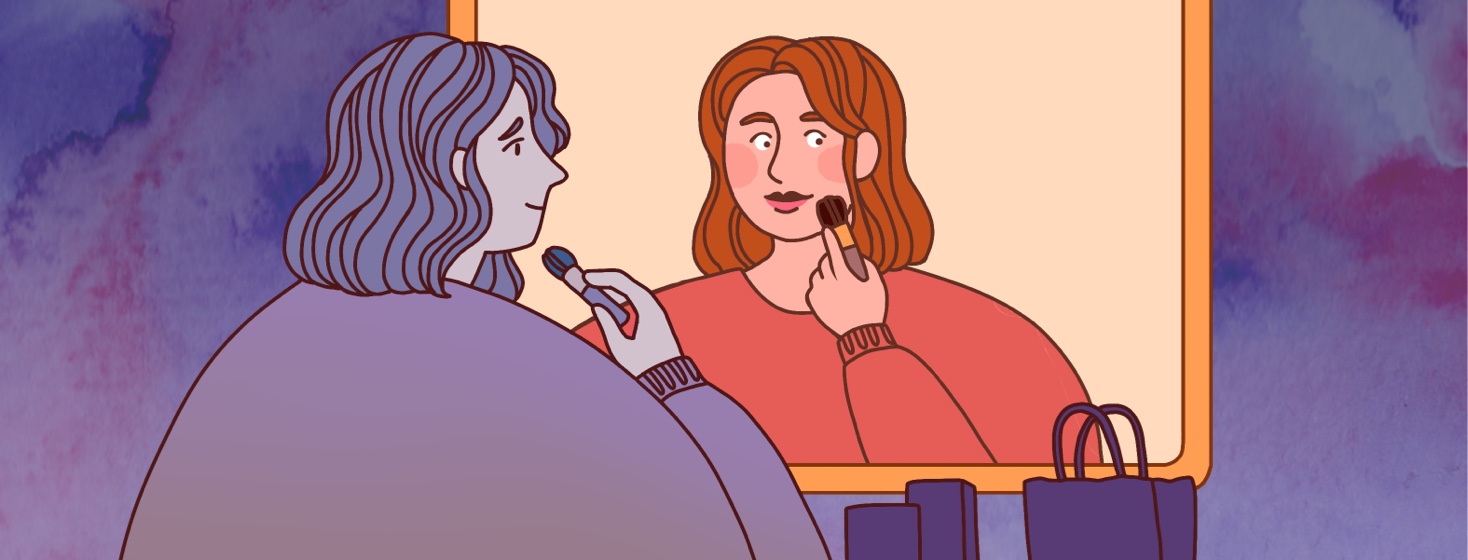Trying to Move On: Post-Op Thoughts on Thyroid Eye Disease
New surgery, new me! Is that the right phrase?
I would like to say that my journey with thyroid eye disease (TED) has been a rollercoaster, but it has been more like a downward spiral. It has been traumatic, messy, hurtful, and deeply damaging - physically, emotionally, and mentally. I look back on the past few years, and I see a clear divide in my life - the me before TED, and the me with TED.
But now that I am on the other side of orbital decompression and lid surgeries (all of which helped correct some of the damage caused by TED), there is another new me. When I look in the mirror now I do not see the old me, and I do not see the person lost in the downward spiral. I see someone who has been through a lot, perhaps someone who can breathe a little easier, and someone who is trying to move on. But how? This is something that I have actively thought about and am taking specific steps towards.
Moving on after surgery for thyroid eye disease
Getting reacquainted with the camera
While surgeries certainly helped a lot, I do not look exactly like the pre-TED version of me. Between the physical changes and the fact that I’ve avoided being in photos for so long, I have no idea how to “smile for the camera!" anymore. I have started practicing with selfies - I do my hair and makeup, put on a nice outfit, and make sure I feel my best before turning the camera my way. If I like a photo, I post it on social media.
This seems simple, but I want to actively normalize seeing and sharing photos of myself again. I also plan to schedule a practice photo session with my husband. There is no pressure - I will delete all the photos without looking at them if I want to. The goal is only for me to get more comfortable.
Practicing looking at my eyes in the mirror
In the middle of TED, I often looked at myself in the mirror without looking at my eyes. I looked at my hair while drying it or my eyelashes while putting on mascara. By compartmentalizing my focus, I hoped to avoid a meaningful connection with the stranger in the mirror, afraid I would get lost in her sadness. This is a hard habit to break, but each time I catch a glimpse of myself in the mirror I try to make a connection.
Making bold makeup choices
What was once a tool to help me hide my symptoms is now an empowering tool for self-expression. Instead of taking baby steps, I went off the deep end and bought all of the bright eyeshadow palates I desired. Bright colors and sparkles were things that I would have strayed away from in the middle of TED, but now doing something big and bold that would actually draw attention to the area that I am most sensitive about? It felt scary at first, but it was empowering, and even fun, the more I explored.
Seeking out help
I have struggled with finding the right therapist and approaches that work for my needs. Explaining how awful my journey with TED has been can be a daunting task, especially if I am speaking to someone who is not as familiar with autoimmune conditions. I will continue trying to find the right fit, perhaps with someone who specializes in working with individuals who have chronic illnesses.
Doing things I enjoy
For years, I spent so much energy every day navigating TED symptoms, and it was exhausting. I still have some things to navigate (mostly using eye drops in the morning, eye drops before bed, and being mindful of my latest surgery site), but now that things are a bit easier what would happen if I spent that energy, once reserved for TED, doing activities that I love?
I am buying theatre tickets, singing more often, baking bread, and having game nights with friends - could I trick myself into forgetting about TED for just a little while? It’s a practice that is helping me find a greater sense of peace and normalcy.
So, how do I move on after surgery for TED?
People often ask me “How did you get past this? How did you come to terms with how you’ve changed?” The simple answer - I haven’t, but I’m taking small steps forward. It’s not a race to get to the other side. Maybe there is no other side. Maybe I’ll always be in a constant state of adjustment. Maybe I’ll surprise myself and there will come a time when I don’t think about my eyes every day. Only time will tell, but until then I’ll continue one step at a time.
Do you have a thyroid eye disease (TED) story? Click the button below to share with our community!

Join the conversation